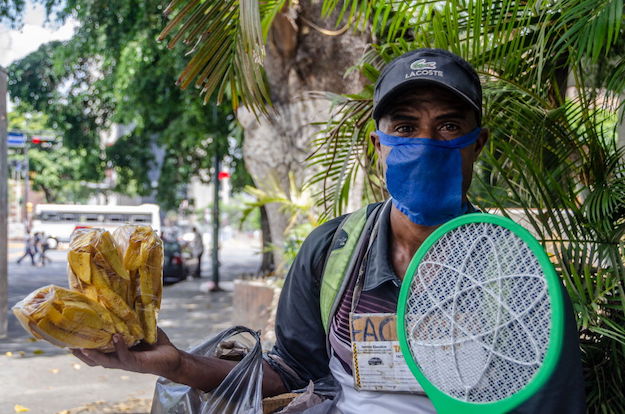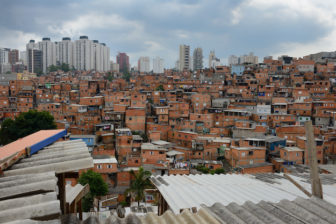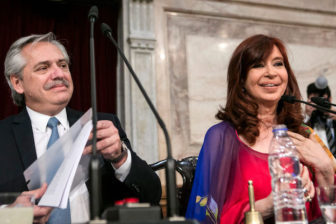This article is part of a continuing series on Latin America’s fiscal response to COVID-19.
CARACAS – If COVID-19 lockdowns have brought economic pain to countries like Peru and Colombia, the same goes double for Venezuela, where strict quarantine measures starting in March shut down an economy already suffering from hyperinflation, high levels of unemployment and a seven-year recession.
The impact on everyday lives has been immense – from a rise in food insecurity, to the collapse of public services such as electricity, gas and water, to a grave lack of basic goods. In a country with some of the highest hydrocarbon reserves in the world, even gasoline has become scarce.
To ensure that the quarantine doesn’t cost more lives than the coronavirus itself, the re-opening of those few sectors of the Venezuelan economy that were providing relief and income will need to be carefully planned, and come alongside an agile public policy response that is not what most would expect of President Nicolás Maduro’s administration. There are some basic steps that could help mitigate the worst effects of the crisis in the long term, but the challenges are hard to understate.
Start with the basics. Since the beginning of the pandemic, food prices have risen 150% – Venezuela remains in hyperinflationary territory, even as huge numbers of workers lose their jobs and sources of income. Those without significant savings or a safety net – a large portion of the population – are at particular risk: Close to 85% of the population is now unable to access the basic food basket.
External and domestic economic factors have made it next to impossible for the Venezuelan government to respond forcefully. Even as global quarantines are slowly relaxed, the outlook for the country’s oil sector remains highly negative, with expectations of a 20% year-on-year decline in oil-sector GDP in 2020. U.S. economic sanctions further limit the administration’s room to maneuver. As a result, in contrast to other countries in the region, the fiscal space to respond to people and businesses in Venezuela is almost non-existent.
Venezuela further lacks foreign currency reserves and faces an external deficit this year of over $10 billion as a result of the fall in oil exports. Three years of hyperinflation have destroyed trust in the currency, to the point were any increase in spending will exert additional pressure on prices. Amid a difficult macro-economic outlook, previous non-payment on foreign debts and persistent political and institutional conflict, Venezuela is also unable to access international financing from organizations such as the IMF. In this context, the Venezuelan state has ceased to exist as a reliable provider of goods and services.
Labor markets have similarly been disrupted, and a return of employment will likely be suppressed even after quarantine measures have been lifted. As in the rest of the world, massive layoffs and prolonged furloughs have been the norm. Even after the administration issued a decree to limit labor mobility, those businesses that have maintained operations have been forced to reduce salaries or significantly reduce the number of employees’ workdays. A recent study of business conditions in light of the pandemic showed that 45.3% of large firms Venezuela (with at least 300 employees) planned to reduce their staff by at least 15% in the short term. It’s likely that a large part of the previously employed population will move to the informal sector.
As the economy re-opens, these workers will be limited in their ability to spend. The reduction in consumption could be further driven by an expected reduction in remittances from $3.5 billion to $1.5 billion this year as Venezuelans abroad feel the effects of the pandemic in their countries of residence.
Those steps that the government has taken to shore up jobs have failed to inspire confidence. The executive branch recently said it would pay part of private sector salaries through a business stimulus package. But 63% of businesses, of all sizes, said they would not make use of the offer – firms appear to have little faith in government regulators to make good on their promise (a fact made clear by increases in exchange rates in recent weeks).
Meanwhile, the government’s medium-term fiscal accounts continue to suffer with each new salary announcement and subsidies being paid through the Patria social protection program, which provides only minimal support to a large segment of the population. Gasoline shortages may also be exacerbated by government activity itself, as “non-official” sales channels tend to distribute profits among different factions of power, both political and military.
All this points to the need to reopen the economy, but here too there are deep challenges. Domestic economic activity will be subject to the recovery of the world economy, meaning that even a reopening of markets in Venezuela would not mean that a full slate of basic goods would suddenly become available.
Likewise, a reactivation of commercial activity and the fear of a more significant collapse in the gasoline supply could drive local demand for fuel. This would provoke the appearance of new informal markets and, as a result, put more pressure on the cost of goods, transportation and hydrocarbons-intensive factors of production. A sudden increase in public transport and electricity would also strain these ailing systems.
So what to do? To start to find a way forward, reopening could be based by sector and done only gradually. Commercial sectors with the biggest impact on food sales and distribution would be part of a first wave. This could come alongside measures recently recommended by industrial trade groups to improve operational aspects of procurement and shipment of imported goods. Health services would also be included in the first group of businesses allowed to reopen, as well as efforts related to improve fuel distribution.
After the first couple weeks, some small businesses, services providers and suppliers could be added to the mix. A final phase could include commercial offices, and high-risk places such as malls, restaurants, movie theaters and commercial banks.
Before relaxing containment strategies, though, we have to enter into a meaningful public debate over whether we’re ready for even a gradual opening. What will be the cost for Venezuelans, and are we prepared to pay it?
—
Oliveros is partner and director of Ecoanalítica, an economic and financial advisory company based in Caracas. For five years he was a senior economist at Santander Investment, and has worked as a consultant for multilateral organizations and a professor at the Universidad Católica Andrés Bello and Universidad Central de Venezuela. Follow him on Twitter @aroliveros.








